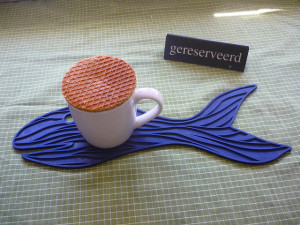chapter ![]()
[noun]
[het hoofd-stuk, de hoofd-stuk-ken]
If you’ve ever opened a Dutch book, you will have come across this word. "Hoofdstuk" consists of "hoofd" ("head") and "stuk" ("piece"). It can be used both in a literal and a figurative sense.
Examples:
– "Welke hoofdstukken moeten we voor de training morgen lezen?"
("Which chapters do we have to read for the training tomorrow?")
– " ‘De avonden’ van Gerard Reve is het saaiste boek dat ik ooit heb gelezen; ik heb echt mijn best gedaan, maar ben maar tot hoofdstuk twee gekomen."
(" ‘The evenings’ by Gerard Reve is the most boring book I’ve ever read; I really tried my best but I only made it to chapter two.")
– "Nu Michael Jackson is overleden, is er een hoofdstuk in de geschiedenis van de popmuziek gesloten."
("Now that Michael Jackson has passed away, a chapter in the history of pop music is closed.")
– "De hernieuwde onderhandelingen tussen de twee vijanden waren het begin van een nieuw hoofdstuk."
("The renewed negotiations between the two enemies were the beginning of a new chapter.")
Related words:
– Inhoudsopgave: table of contents [noun] [de inhoudsopgave, de inhoudsopgaven].
– Hoofd: head [noun] [het hoofd, de hoofden].
– Stuk: 1. piece [noun] [het stuk, de stukken] 2. broken [adjective/adverb] 3. document [noun] [het stuk, de stukken].
– Paragraaf: paragraph [noun] [de paragraaf, de paragrafen].




 You will hear both “reserveren” and “een reservering maken”, but “reserveren” is more common. The past participle “gereserveerd” is also used as an adjective or adverb, see the Related words.
You will hear both “reserveren” and “een reservering maken”, but “reserveren” is more common. The past participle “gereserveerd” is also used as an adjective or adverb, see the Related words.